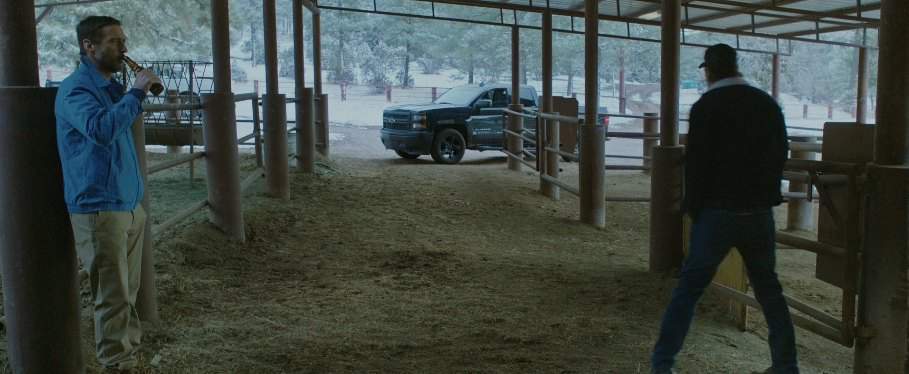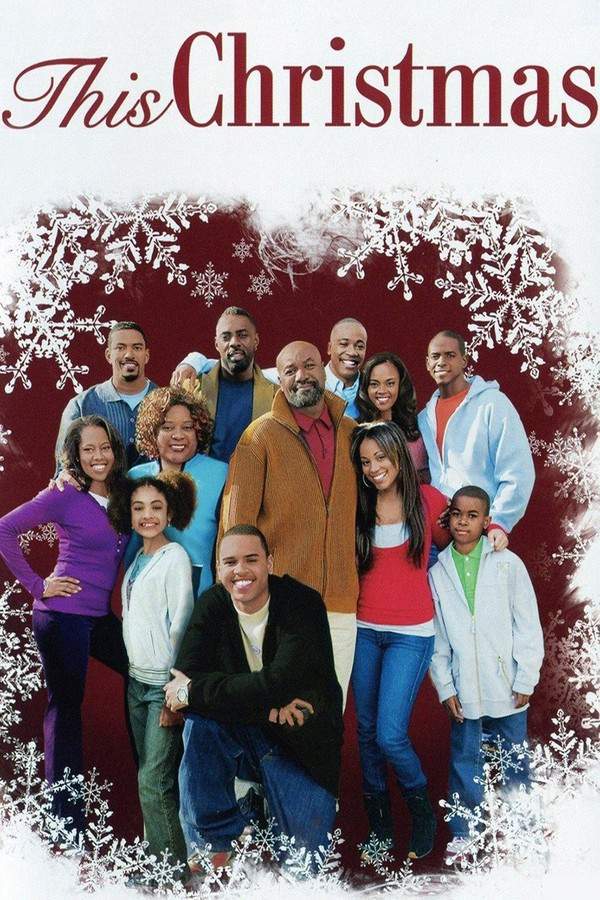The Best Christmas Pageant Ever 2024

The Herdmans are notorious for their mischievous behavior, known throughout the town for their dishonesty and bullying. When they decide to take over the annual Christmas pageant, chaos and unexpected moments of heart ensue, challenging the traditions and the people involved. Based on the popular novel by Barbara Robinson.
Does The Best Christmas Pageant Ever have end credit scenes?
No!
The Best Christmas Pageant Ever does not have end credit scenes. You can leave when the credits roll.
Meet the Full Cast and Actors of The Best Christmas Pageant Ever
Explore the complete cast of The Best Christmas Pageant Ever, including both lead and supporting actors. Learn who plays each character, discover their past roles and achievements, and find out what makes this ensemble cast stand out in the world of film and television.
External Links and Streaming Options
Discover where to watch The Best Christmas Pageant Ever online, including streaming platforms, rental options, and official sources. Compare reviews, ratings, and in-depth movie information across sites like IMDb, TMDb, Wikipedia or Rotten Tomatoes.
Ratings and Reviews for The Best Christmas Pageant Ever
See how The Best Christmas Pageant Ever is rated across major platforms like IMDb, Metacritic, and TMDb. Compare audience scores and critic reviews to understand where The Best Christmas Pageant Ever stands among top-rated movies in its genre.

The Movie Echo Score
The Best Christmas Pageant Ever delivers a warmhearted holiday experience marked by deft direction and agreeable performances but is undercut by predictable beats and uneven timing. Directorial choices maintain a gentle wit and clear message without heavy-handedness, though the narrative frequently relies on familiar faith-based tropes. Performances are generally serviceable, highlighted by a strong child lead, yet emotional stakes sometimes feel distant. Pacing slows noticeably in the latter half, limiting engagement for younger audiences. Overall, the film offers seasonal charm but falls short of lasting impact.
The Movie Echo Score Breakdown for The Best Christmas Pageant Ever

Art & Craft
Artistic elements display a restrained visual coherence tempered by occasional timing inconsistencies. In terms of direction, framing remains steady and the adaptation’s aesthetic evokes classic holiday warmth. Production design and cinematography support the nostalgic tone with subtle color palettes, though editing at times undercuts comedic and dramatic beats. Overall, the film’s craft is competent but not without minor flaws in pacing.

Character & Emotion
Character portrayals balance genuine warmth with a degree of emotional distance. When it comes to acting, the child lead delivers a solid performance while supporting players are competent yet seldom surprising. Character arcs follow familiar faith-based patterns, which offer occasional resonance but limit depth. Overall, emotional engagement remains modest, yielding warmth without profound impact.

Story & Flow
The narrative unfolds with clear thematic intent but relies heavily on established holiday tropes. In terms of plot coherence, the storyline progresses logically, yet originality is limited by predictable faith-based conventions. Pacing is measured, with a gentle momentum that focuses on uplifting beats, though the latter half slows and may test engagement. Overall, the story is dependable and sincere but lacks surprising developments.

Sensory Experience
The film’s sensory design offers nostalgic charm anchored by a subdued audiovisual style. In terms of visual style, muted color palettes and traditional set pieces evoke a classic holiday atmosphere without extravagance. The soundtrack provides simple, melodic themes that reinforce emotive moments, while sound design remains unobtrusive yet effective. Overall, the sensory experience is pleasingly cohesive though rarely ventures into striking territory.

Rewatch Factor
The Best Christmas Pageant Ever offers moderate rewatch potential, particularly for seasonal viewing. Regarding replay value, its gentle humor and familiar storyline make it a comforting choice for holiday routines. Lasting appeal stems from its positive messaging and a standout child performance, even though predictable elements may diminish repeat surprises. Overall, the film rewards subsequent viewings for its warmth but may not sustain long-term fascination.

60
Metascore
6.7
User Score


92%
TOMATOMETER

97%
User Score

/10
IMDb Rating

69
%
User Score

3.1
From 12 fan ratings

5.00/5
From 10 fan ratings
Take the Ultimate The Best Christmas Pageant Ever Movie Quiz
Challenge your knowledge of The Best Christmas Pageant Ever with this fun and interactive movie quiz. Test yourself on key plot points, iconic characters, hidden details, and memorable moments to see how well you really know the film.
The Best Christmas Pageant Ever Quiz: Test your knowledge on the quirky and heartwarming Christmas pageant led by the infamous Herdman children.
What is the main behavior of the Herdman children that makes them infamous?
Building toys for children
Smoking cigars, cussing, drinking jug wine, shoplifting, and committing arson
Helping neighbors with chores
Attending school regularly
Show hint
Full Plot Summary and Ending Explained for The Best Christmas Pageant Ever
Read the complete plot summary of The Best Christmas Pageant Ever, including all major events, twists, and the full ending explained in detail. Explore key characters, themes, hidden meanings, and everything you need to understand the story from beginning to end.
The Herdman siblings—Imogene, Ralph, Claude, Leroy, Ollie, and Gladys—are notorious in their community for their chaotic and unruly antics, which include smoking cigars, using foul language, indulging in homemade wine, stealing from stores, and even committing acts of arson. This unsavory reputation can be attributed to their chaotic upbringing; their father deserted the family when Gladys was just an infant, leaving their mother overwhelmed as she juggles multiple jobs to provide for her children. This absence of parental guidance means that the Herdman children have largely evaded any real consequences for their behavior.
Despite their dismal academic performance, the Herdmans are allowed to progress through elementary school, as teachers dread the idea of having multiple Herdman kids in the same grade, a scenario they hope to avoid at all costs. As the story unfolds, the children discover the local Sunday school, drawn in by the promise of snacks and treats. It is here that Imogene (played by Judy Greer), Ralph (portrayed by Pete Holmes), and the rest of their gang inadvertently take center stage during the church’s Christmas pageant practice. Shockingly, they end up volunteering for the starring roles: Imogene as Mary, Ralph as Joseph, and Claude, Ollie, and Leroy as the Three Wise Men, with Gladys stepping into the role of the Angel of the Lord—a role she likens to a character from Amazing Comics.
The seasoned director finds himself at a loss, having been bullied into submitting to the Herdman’s unexpected dominance over the pageant. Meanwhile, concerned local mothers quickly withdraw their toddlers from the performance, fearing for their safety when dealing with the notorious Herdmans. As a result, Beth’s mother reluctantly resorts to using a doll for the role of baby Jesus.
Given that the Herdmans have never encountered the traditional Christmas narrative, they approach the story with a fresh set of eyes, which compels the narrator and her family to reevaluate some of the more difficult and harsh realities of the tale—such as the callous innkeeper who denied a distressed pregnant woman a place to stay, or the terrifying plight of the Holy Family fleeing from King Herod’s murderous intentions.
While the entire town braces itself for what they believe will undoubtedly be a catastrophic performance, the Herdman children showcase an unexpectedly heartfelt and authentic interpretation. Unlike conventional stage actors, the Herdmans display hesitation and uncertainty that mirror the genuine feelings of the Holy Family and the Wise Men. Imogene, as Mary, cradles the doll representing Jesus with an earnestness that befits a mother holding her own child. The Wise Men, instead of offering traditional gifts of frankincense and myrrh, present a ham from their family’s gift basket, evoking both humor and warmth. The shepherds, in turn, seem genuinely awestruck when Gladys joyously proclaims the birth of Jesus.
By the performance’s conclusion, the narrator observes a touching scene: Imogene, emotional and deeply affected, sheds tears while holding the “baby.” The experience culminates in a unanimous decision among the townsfolk—this unconventional Christmas pageant has emerged as the most memorable and touching version the community has ever witnessed. All in all, the Herdmans have left an indelible mark on the hearts of those present, transforming their reputation and the essence of the Christmas story into something truly unforgettable.
Uncover the Details: Timeline, Characters, Themes, and Beyond!

Coming soon on iOS and Android
The Plot Explained Mobile App
From blockbusters to hidden gems — dive into movie stories anytime, anywhere. Save your favorites, discover plots faster, and never miss a twist again.
Sign up to be the first to know when we launch. Your email stays private — always.
Watch Trailers, Clips & Behind-the-Scenes for The Best Christmas Pageant Ever
Watch official trailers, exclusive clips, cast interviews, and behind-the-scenes footage from The Best Christmas Pageant Ever. Dive deeper into the making of the film, its standout moments, and key production insights.
Cars Featured in The Best Christmas Pageant Ever
Explore all cars featured in The Best Christmas Pageant Ever, including their makes, models, scenes they appear in, and their significance to the plot. A must-read for car enthusiasts and movie buffs alike.
The Best Christmas Pageant Ever Themes and Keywords
Discover the central themes, ideas, and keywords that define the movie’s story, tone, and message. Analyze the film’s deeper meanings, genre influences, and recurring concepts.
The Best Christmas Pageant Ever Other Names and Titles
Explore the various alternative titles, translations, and other names used for The Best Christmas Pageant Ever across different regions and languages. Understand how the film is marketed and recognized worldwide.
Similar Movies To The Best Christmas Pageant Ever You Should Know About
Browse a curated list of movies similar in genre, tone, characters, or story structure. Discover new titles like the one you're watching, perfect for fans of related plots, vibes, or cinematic styles.
Quick Links: Summary, Cast, Ratings, More

What's After the Movie?
Not sure whether to stay after the credits? Find out!
Explore Our Movie Platform
New Movie Releases (2026)
Famous Movie Actors
Top Film Production Studios
Movie Plot Summaries & Endings
Major Movie Awards & Winners
Best Concert Films & Music Documentaries
Movie Collections and Curated Lists
© 2026 What's After the Movie. All rights reserved.













































